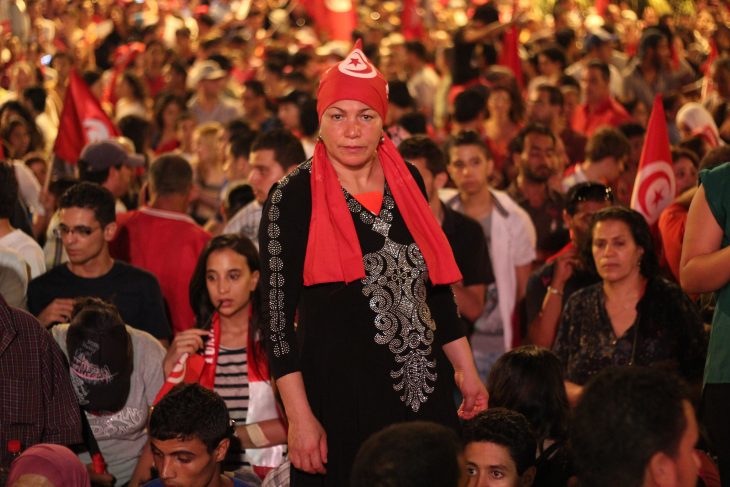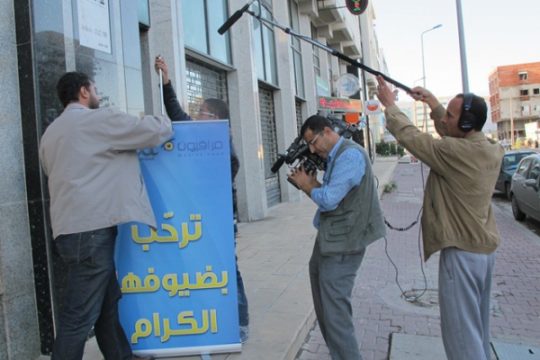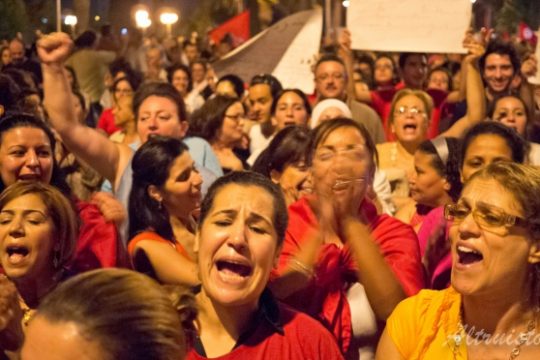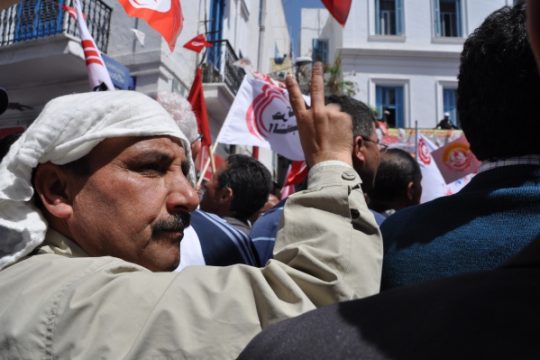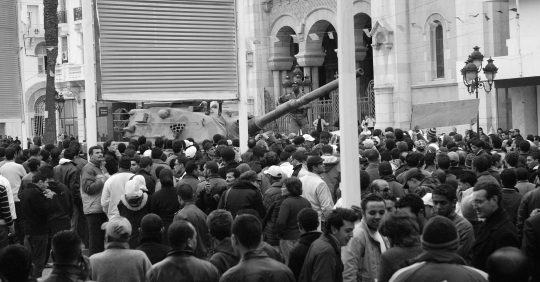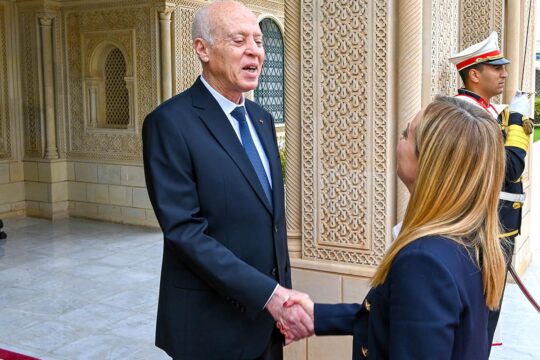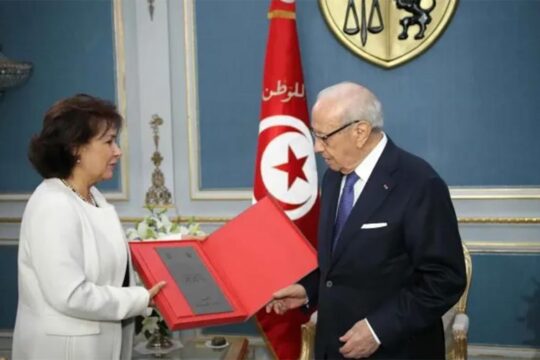On the morning of January 14, 2011, the growing crowd on Avenue Bourguiba in central Tunis was mixed. There were as many women as men demonstrating for dignity, freedom, work, equality, social justice and democracy on that memorable day which saw the flight of a dictator who had ruled with an iron fist for 23 years. Women of all ages, from all backgrounds and socio-professional groups spoke up in public that day without fear and without censorship, in an atmosphere of revolutionary fervour. They clapped as a group of lawyers passed, headed by women in black robes singing the national anthem. Young female bloggers and cyber-dissidents had since December 17, 2010 (self-immolation of 17-year-old street trader Mohamed Bouazizi, which sparked the revolution) been helping gather and circulate news of what was happening in the street. Their knowledge of social networks and how to elude censorship by Ben Ali’s Internet police helped the Tunisian events to resonate around the world.
What would the Revolution have been without the women, without their courage, intelligence, skills and sense of freedom?
Tunisian women continued to fight when Islamists in power after October 23, 2011, tried to introduce the concept of “complementarity between men and women” into the draft Constitution. On 13, 2012, thousands of women marched in central Tunis in protest at this proposal. They managed to get it thrown out. The January 2014 Constitution provides for equality between the sexes and includes the principle of “parity”.
Glass ceiling
“In a country that published a Code in 1956 giving women rights that were exceptional in a Muslim country – including banning polygamy and giving women the right to choose with regard to their own bodies, their children and their future –, it was almost natural that Tunisian women were as active in the recent political upheavals as they have been,” says Souad Triki, an economist, researcher and women’s activist who was also vice president of the Higher Independent Elections Authority (ISIE) in 2011. “In fact this Code has not remained a dead letter, it has had an effect on the practices, actions and words of Tunisian women. They have internalized their pioneering spirit. It has emancipated them generation after generation and fed into their political consciousness.”
And yet despite their legal rights, their commitment to rights and freedoms and all their post-revolutionary marches for equality and equal opportunities, there is still a glass ceiling that blocks Tunisian women’s access to decision-making positions. There have been very few women in the successive transition governments of the past five years. Only 0.7 % hold senior posts in public administration and Tunisia’s two flagship organizations that won the 2015 Nobel Peace Prize, i.e. the UGTT labour union and the human rights league, neither of which have ever elected a woman to their decision-making bodies.
“Experience shows that it is not quotas but rather horizontal parity (50% men and 50% women), enshrined in the new Constitution, that can help women reach those posts,” says Souad Triki. “Parity is synonymous with equality between women and men. This can be achieved notably in Tunisia, where we have made big steps forward since the elections of October 23, 2011. To attain this goal and get the electoral code revised, we need civil society to mobilize again, we need women to form a group in the Assembly of People’s Representatives where they today make up 30% of MPs, and we need the creation of a gender committee in parliament to make sure that laws are not discriminatory.”
Headed for unemployment
Figures show that discrimination against women remains. Whereas 63.5% of students are women, it is mainly women (41.1%) who end up unemployed, according to the National Statistics Institute (INS). The number of women with diplomas who are unemployed is twice that for men. If a man and a woman go for the same post, the man usually gets it, even if the woman has brilliant qualifications.
“The laws are not discriminatory,” comments Souad Triki. “The Labour Code provides for equal salaries. But women, many of whom are employed in agriculture, are paid half of what men are paid. It is hard to change mentalities on some things.”
It can also happen that practices and mentalities regress, particularly with regard to violence against women, which has increased significantly since the revolution. A survey by the Centre for Research, Documentation and Information on Women (CREDIF) revealed on March 8, International Women’s Day, that one out of every two woman is victim of violence in public places.
Nadia Chaabane, former MP for the Al Massar party (centre-left), is now engaged with the Enda Inter-Arab development community training women in jobs with good perspectives and good salaries, which she sees as the best way to give them autonomy and access to public and political life. With female activists from her party, she has just launched a Facebook page called Nissa-al-46 (Women of 46) in reference to Article 46 of the Constitution which says: “The State pledges to protect the rights acquired by women, to strengthen and develop them. The State guarantees equality of opportunities for men and women in access to all responsibilities and with regard to all areas of life. The State works for parity between women and men in elected assemblies. The State takes the necessary measures to eliminate violence against women.”
Male politicians with cold feet
The ex-MP denounces a lack of will on the part of male politicians and how they use women in their campaigns and public speeches without showing any desire for structural reforms. She is full of ideas for initiatives in line with the principles of the Constitution.
“Equal opportunities can be ensured by simple mechanisms that do not require passing a law -- decrees or circulars are enough,” says Nadia Chaabane. “It can be achieved by putting in place public policies that facilitate women’s access to the labour market, by providing day care units for small children, tax incentives to encourage crèches under State supervision, mechanisms that oblige companies to report on their recruitment policies, an Equality Charter for them to sign, quotas in competitive recruitment, better access to banks and funding through a dedicated guarantee fund.”
Their history and identity, along with all the big and small battles they have fought, all go to make Tunisian women pasionarias of parity.
“What is a revolution worth if it does not change prejudices, inequalities and attitudes?” asks sociologist and women’s activist Dorra Mahfoudh.



